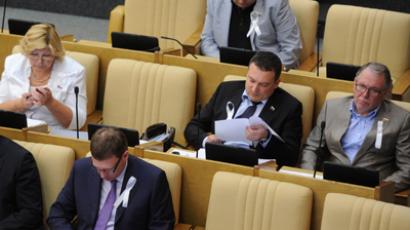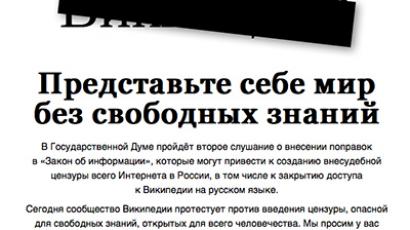Content containment: Russian blacklist of outlawed websites in force

President Putin has signed into law a bill obliging Russian internet providers to block websites with banned content and putting responsibility on state agencies and NGOs to search for such sites.
The bill was published in the official government newspaper, which brings legislation into force on Monday. The bill provides for making an official blacklist of banned websites, web pages and web addresses that contain information dangerous for children (its official name reads “On the Protection of Children from Information that is Harmful to their Health and Development”). This concerns child pornography, information on illegal drugs and also suicide instructions, authors of the bill have claimed. According to the new law, the all-Russian monitoring agency Roskomnadzor will select an NGO that will monitor the web in search of illegal content. The information will be forwarded to Roskomnadzor, which must first warn the owners of the resources. If the owners do not block the content within 24 hours the agency will charge the internet providers with this task. If the provider takes no action, the website will be included in the blacklist.If the owners of the web resources find out that they are included on the blacklist they can contest this decision in a regular court within three months after their inclusion.Roskomnadzor will also monitor the web for other unlawful information, such as reports instigating national and religious hatred or war propaganda, but such information can only be blocked by a court decision, as was previously the case.The law caused a wave of reaction in the Russian community, mostly from public activists who see it as a threat to freedom of speech. The Russian section of the Wikipedia put this question to a vote among contributors, who decided to launch a two-day strike in protest. A public opinion poll conducted by the All-Russian Center for Public opinion Research in early July showed that the overwhelming majority of Russians supported the idea. Seventy-three per cent of those polled said they backed the creation of blacklists and 70 per cent said they were ready to personally contribute to the work of the monitors who search for the outlawed content. Only 9 per cent of those polled said they were against the law, saying it was an attempt to infringe their right to free information. Seventeen per cent of respondents said they would not like to participate in the creation of the blacklists, as they had neither the time nor interest to work on this problem.














